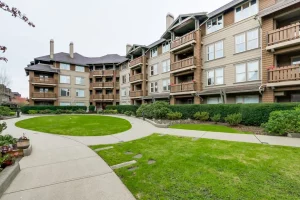For the last few years load shedding has become an unfortunate reality in South Africa. In recent times South Africans have had to endure two to four sessions of two-and-a-half-hour power cuts a day. To complicate matters further, since the pandemic, many people have been forced to work from home. The scheduled load shedding interrupts the power supply, and leaves people with no Wi-Fi and increased data usage.
In my last article I discussed the process for the authorisation of alternative power sources, such as generators and/or solar power, in sectional title schemes. That article focused on the installation of a single generator and/or solar panels on the roof of the scheme that could service the whole scheme. In that article I will focus on what individual owners residing in sectional title schemes can do to make alternative plans to lessen the detrimental effects of power cuts.
Some schemes, due to their physical features and layout, are able to facilitate a generator and/or solar panels for each section. This would be the case in sectional title schemes where the units are free-standing houses. In these types of schemes, the generators could be placed in the garage (that is part of the section) or in the adjoining exclusive use gardens of those sections. The solar panels could be placed on the roof (which remains the common property but could be made subject to exclusive use rights) of those freestanding homes. In multi-story buildings the owners of sections on the ground floor might be able to have generators installed, but this has the unfortunate consequence where the other owners and occupiers would then be asked to tolerate the nuisance, but would not enjoy the benefit of the energy supplied.
Legislative considerations in terms of individual generators
The Sectional Titles Schemes Management Act 8 of 2011 (the “STSM Act”) together with the prescribed management rule (“PMRs”) and prescribed conduct rules (“PCRs”) provide certain considerations before the body corporate should consider the installation of individual generators and/or solar panels for each unit in the scheme.
Section 13(e) of the STSM Act states that an owner must not use his or her section or exclusive use area, or permit it to be used, in a manner or for a purpose that may cause a nuisance to any occupier of a section.
PMR 30(b) places a positive duty on the body corporate to take all reasonable steps to ensure that a member or any other occupier of a section or exclusive use area does not use a section or exclusive use area so as to cause a nuisance, in breach of section 13(1)(e) of the Act.
PMR 30(d) states that the body corporate must take all reasonable steps to ensure that a member or any other occupier of a section or exclusive use area does not make alterations to a section or an exclusive use area that are likely to impair the stability of the building or interfere with the use and enjoyment of other sections, the common property or any exclusive use area.
PMR 30(e) states that the body corporate must take all reasonable steps to ensure that a member or any other occupier of a section or exclusive use area does not do anything to a section or exclusive use area that has a material negative affect on the value or utility of any other section or exclusive use area.
In terms of PCR 5(1) the owner or occupier of a section must not, without the trustees’ written consent, make a change to the external appearance of the section or any exclusive use area allocated to it unless the change is minor and does not detract from the appearance of the section or the common property.
PCR 7(1) states that the owner or occupier of a section must not create noise likely to interfere with the peaceful enjoyment of another section or another person’s peaceful enjoyment of the common property.
In regard to the storage of flammable materials, PCR 6(1) states that the owner or occupier of a section must not, without the trustees’ written consent, store a flammable substance in a section or on the common property unless the substance is used or intended for use for domestic purposes. However, PCR 6(2) specifically states that this rule does not apply to the storage of fuel or gas in a generator or engine, or a fuel tank or gas cylinder kept for domestic purposes.
In the normal course of events, I would advise that generators are unsightly and would cause noise and smoke nuisance in a sectional title scheme. But, under the circumstances, it would seem reasonable to grant the owners permission to use generators for the periods that the electricity is off, subject to certain restrictions.
Before the body corporate makes a decision on whether generators are allowed within a scheme they should consider these abovementioned provisions, and weigh the possible noise, fume and appearance factors against the need for owners and occupiers to have an uninterrupted electricity supply.
Level of consent for authorisation to install individual generators.
If the trustees have considered all these aspects and want to authorise a single generator to be installed in the scheme, the next question is what level of consent is required to authorise the generator?
Where individual generators and/or solar panels can be installed and facilitated within the scheme, my recommendation is that the body corporate makes a conduct rule that deals with the installation of generators for each section. In this way a special resolution is obtained and 75% (reckoned in both number and value) of the owners “buy into” the installation of the generators. The rule should include the following conditions:
- The type of generator and/or solar panels that are permitted.
- The appropriate placement/location of the generator and/or solar panels.
- A list of preferred contractors to install the generator and/or solar panels.
- Specify reasonable times in the day that the generator can be operated.
- Limit the maximum duration that the generator can be used at one time.
- Limit generator usage to periods that the owners or occupiers are home to avoid unsupervised use.
- Clearly establish who is responsible for the maintenance and repair of the generator and/or solar panels.
Conclusion
It goes without saying that generators and solar panels can be unsightly and that generators cause noise and smoke/fume nuisance in sectional title schemes. But, under the circumstances, it would seem reasonable to have generators and/or solar panels installed and used for the periods that the electricity is off, subject to certain restrictions. Possible solutions should be discussed to reduce the negative side-effects of the noise nuisance, smoke emissions and undesirable aesthetic considerations. Solutions could include installing the solar panels in areas in the scheme that are less visible and building a structure in an area away from the units that will house the generator to reduce sound and smoke emissions.
Written by Dr. Carryn Melissa Durham of Stratafin













